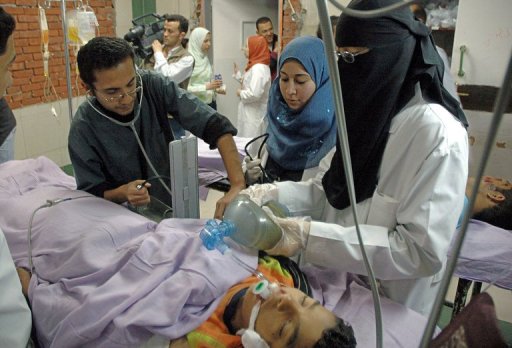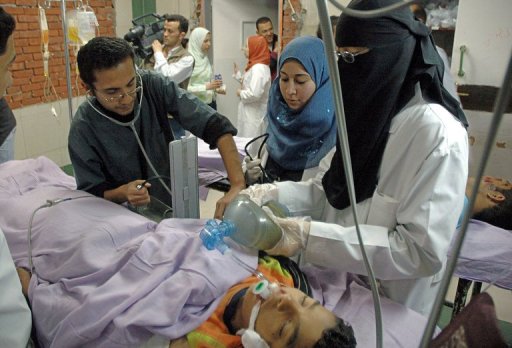
(AFP File Photo)
A new “security activation” plan was agreed upon between Minister of Interior Mohamed Ibrahim and representatives of the doctors syndicate on Saturday.
In the case of an emergency, the plan details, additional forces will be called in to reinforce hospital security.
The new agreement stipulates that in case of a crime against a hospital, a report on the incident is drafted with hospital administration to be sent to a police station. State prosecutors will then interview the members of the medical staff who were assaulted to give their accounts of the assault.
The agreement also states that hospital security will be reinforced through police involvement with hospitals’ own administrative security in managing the entry of patients and their visitors into hospitals.
At the end of the meeting, the two sides agreed that there will be “permanent communication” between the syndicate and officials in the ministry to ensure the implementation of the agreement.
Secretary-general of the syndicate Mona Mina attended the meeting with Ibrahim and his aides.
Hossam Kamal, the rapporteur of the syndicate’s media arm, said earlier that the meeting was requested in order to reach “quick and radical solutions to prevent repeated assaults on hospitals”.
This meeting comes after the doctors syndicate requested in an official statement a meeting with the minister on 23 December to “address repeated assaults” on medical institutions and staff.
Doctors have been calling for defending hospitals from attacks and assaults for months. One recent attack on a hospital took place on Friday at dawn, leaving three doctors at Imbaba General Hospital injured with cuts and bruises and causing damage to the emergency care department.
Throughout the past years, there have been several incidents in which doctors in public hospitals were forced to shut down their emergency operations due to attacks, which has prompted the syndicate to repeatedly call for more security. In May, doctors from the Beni Suef General Hospital emergency department started a strike after such an attack.
One of the three demands that doctors raised during their strike in 2012 was a law to create harsher penalties on anyone who commits an act of aggression against doctors or hospitals.
While the doctors’ strike lasted overt 80 days in 2012, the syndicate is taking a different approach this year. They staged a strike on 1 January and are planning to stage another one on Wednesday, 8 January.
The strike includes members of all hospitals and medical institutions that operate within the public healthcare sector and will affect all non-emergency medical services and outpatient clinics. However, the emergency operations, kidney dialysis processes, intensive care units and incubators will continue to run normally.
The syndicate’s demands this year are the same as in 2012: increasing hospital security, raising the state budget for health care, passing a draft law that would raise doctor incomes, and assisting hospitals with training and promotions in hospitals across Egypt.




